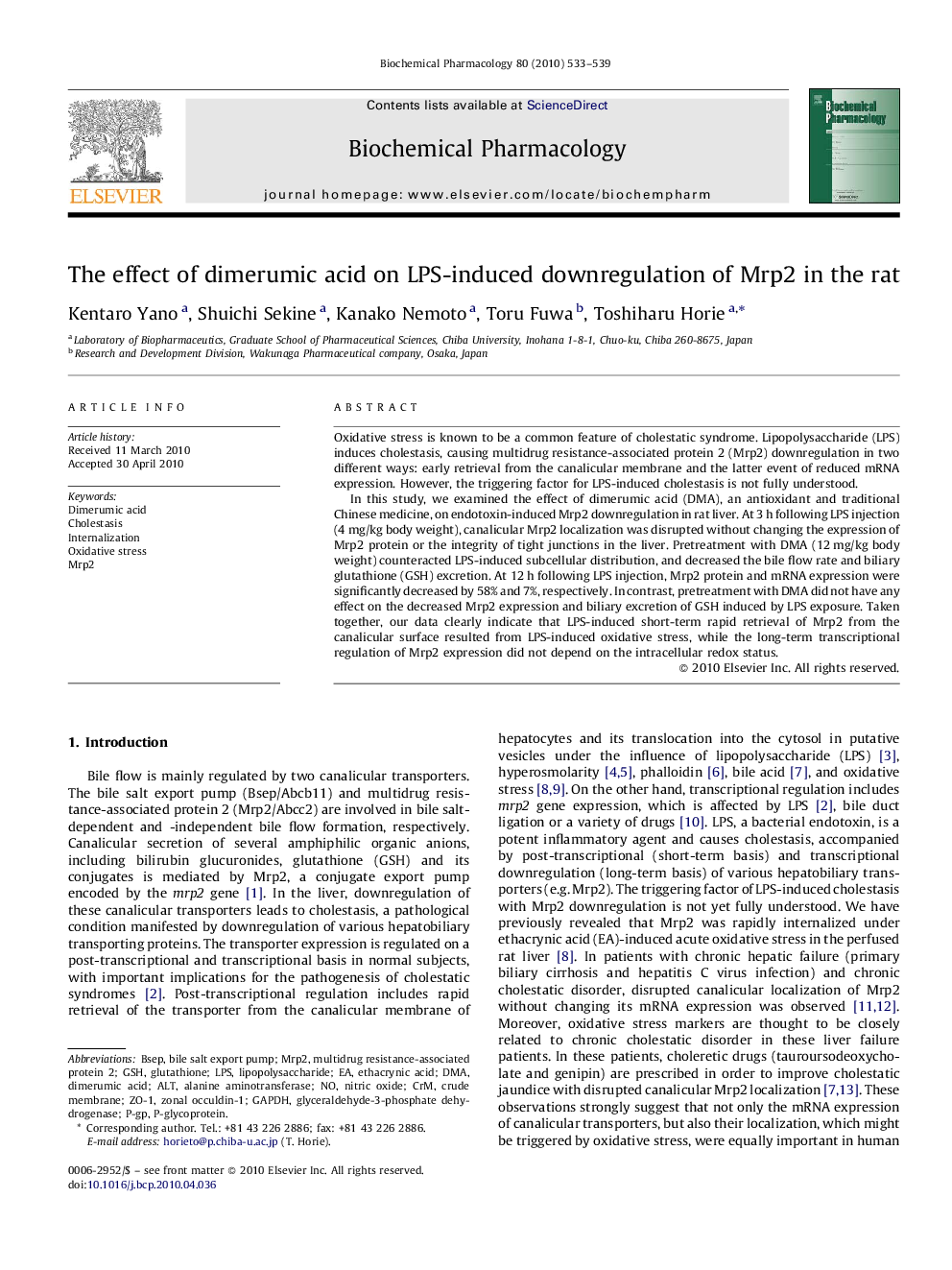| Article ID | Journal | Published Year | Pages | File Type |
|---|---|---|---|---|
| 2513399 | Biochemical Pharmacology | 2010 | 7 Pages |
Oxidative stress is known to be a common feature of cholestatic syndrome. Lipopolysaccharide (LPS) induces cholestasis, causing multidrug resistance-associated protein 2 (Mrp2) downregulation in two different ways: early retrieval from the canalicular membrane and the latter event of reduced mRNA expression. However, the triggering factor for LPS-induced cholestasis is not fully understood.In this study, we examined the effect of dimerumic acid (DMA), an antioxidant and traditional Chinese medicine, on endotoxin-induced Mrp2 downregulation in rat liver. At 3 h following LPS injection (4 mg/kg body weight), canalicular Mrp2 localization was disrupted without changing the expression of Mrp2 protein or the integrity of tight junctions in the liver. Pretreatment with DMA (12 mg/kg body weight) counteracted LPS-induced subcellular distribution, and decreased the bile flow rate and biliary glutathione (GSH) excretion. At 12 h following LPS injection, Mrp2 protein and mRNA expression were significantly decreased by 58% and 7%, respectively. In contrast, pretreatment with DMA did not have any effect on the decreased Mrp2 expression and biliary excretion of GSH induced by LPS exposure. Taken together, our data clearly indicate that LPS-induced short-term rapid retrieval of Mrp2 from the canalicular surface resulted from LPS-induced oxidative stress, while the long-term transcriptional regulation of Mrp2 expression did not depend on the intracellular redox status.
Graphical abstractFigure optionsDownload full-size imageDownload as PowerPoint slide
